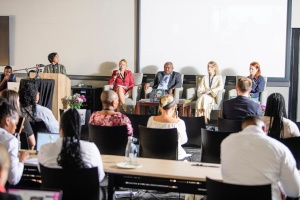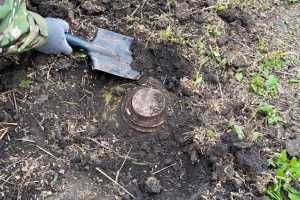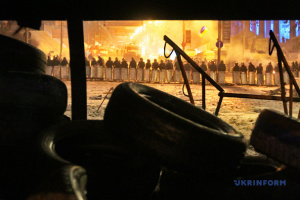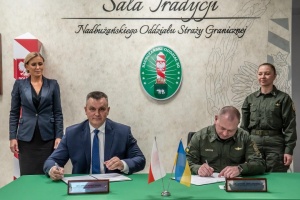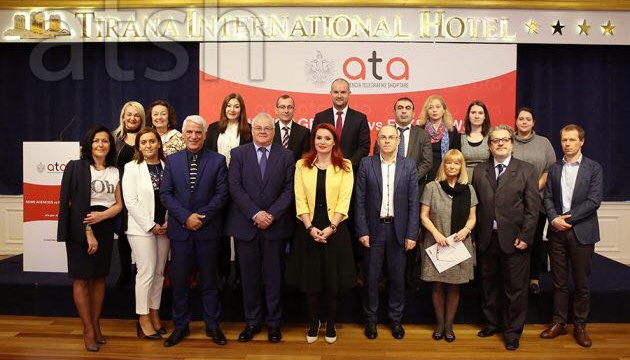
News agencies unite their efforts to сombat threats of fake news
Full text:
RESOLUTION
- ON FIGHTING FAKE NEWS -
Acknowledging that:
● disinformation includes all forms of false, inaccurate, or misleading information designed, presented and promoted to intentionally cause public harm or for profit,
● disinformation does not cover issues arising from the creation and dissemination online of illegal content (notably defamation, hate speech, incitement to violence), which are subject to regulatory remedies under EU or national laws, nor other forms of deliberate but not misleading distortions of facts such a satire and parody,
● the exposure of citizens to large scale disinformation, including misleading or outright false information, is a major challenge for Europe and the world,
● disinformation erodes trust in institutions and in digital and traditional media, and harms our democracies by hampering the ability of citizens to take informed decisions,
● disinformation also often supports radical and extremist ideas and activities,
● disinformation impairs freedom of expression, a fundamental right enshrined in the Charter of Fundamental Rights of the European Union,
● freedom of expression encompasses respect for media freedom and pluralism, as well as the right of citizens to hold opinions and to receive and impart information and ideas "without interference by public authorities and regardless of frontiers",
● mass online disinformation campaigns are being widely used by dishonest parties to sow distrust and create societal tensions, with serious potential consequences for the evolution of nations, Europe and the whole world,
● disinformation can diminish trust in science and empirical evidence,
● the rise of disinformation and the gravity of the threat have sparked growing awareness and concerns in civil society, both in EU Member States and internationally,
● 83% of Europeans consider fake news to present a problem for democracy in general, either "definitely" (45%) or "to some extent" (38%),
● intentional disinformation aimed at influencing elections and immigration policies were the two top categories considered likely to cause harm to society, according to respondents to a public consultation conducted by the Commission. These were closely followed by disinformation in the fields of health, environment, and security policies,
● the impact of disinformation differs from one society to another, depending on education levels, democratic culture, trust in institutions, the inclusiveness of electoral systems, the role of money in political processes, and social and economic inequalities,
● the spread of disinformation takes place in the context of a media sector undergoing profound transformation and facing numerous challenges,
● democracy in the European Union and the world rests on the existence of free and independent media;
Observing that:
● historically, news agencies were created addressing the need for real news from the newspapers,
● news agencies have been, for almost 200 years, the main source of unbiased, objective and therefore trustworthy news, for the general mass-media,
● technological developments make it easy for anybody owning a smartphone to post “news” online, thus becoming a “journalist”,
● an avalanche of information is overflowing from traditional and new media, making it more and more difficult for the public and for journalists also to discern real news from “noise”,
● the news agency business is based fundamentally on selling news wires, and maintaining credibility is the most important aspect of a news agency’s life,
● the more you move further from the main source of news, the easier is to come across disinformation,
● news agencies are facing challenges when confronted to a new context marked by factors like the public’s decreasing trust in media, lowering mass-media standards, more difficulty in finding dedicated journalists, and, lately, a huge increase in fake news;
With the purposes of:
● decreasing the impact of fake news upon local, national and international communities,
● making it more clear which entities are at the roots of the disemination of fake news,
● strenghtening news agencies’ business and profile as real news providers,
● raising awareness among the public on the threats fake news pose to our societies,
● raising awareness among media professionals in regards to the impact fake news has on the entire media environment,
● increasing journalists’ skills in identifying and avoiding fake news,
● promoting real, unbiased and accurate news to local, national and international communities;
After taking part in the international conference organized by the news agency ATA, on the 3rd and 4th of December, 2018, in Tirana, Albania, the below mentioned participants, leading news agencies from their countries, agree to work together following the guidelines, based on the suggestions by the European Commission:
● enhancing transparency of online news, involving an adequate and privacy-compliant sharing of data about the systems that enable their circulation online,
● promoting media and information literacy to counter disinformation and help users navigate the digital media environment,
● developing tools for empowering users and journalists to tackle disinformation and foster a positive engagement with fast-evolving information technologies,
● safeguarding the diversity and sustainability of the European news media ecosystem,
● promoting continued research on the impact of disinformation in Europe and the world to evaluate the measures taken by different actors and constantly adjust the necessary responses,
● promoting cooperation between news agencies, for news verification and timely discovery of fake news,
● promoting cooperation between news agencies for the training of their staff on anti-fake news procedures,
● promoting the creation of new and the upholding of existent trustworthy professional media structures dedicated to or favourable towards fighting disinformation at a large level,
● constantly organising international conferences in different countries on the subject of fighting fake news,
● establish a fake news crisis "red line" among our agencies cross-checking information concerning transnational stories,
● design a tool to determine whether trending topics are newsworthy and truthful,
● establish an ad-hoc committee to examine ways of strengthening the cooperation between news agencies in this particular field and establish good practices.
The below mentioned news agencies urge all individual news agencies, no matter them being funded privately or by states, and international associations of news agencies to adhere to the present resolution, having in mind the best interests of the media landscape, the public and societies as a whole.
Initiators:
AA - Turkey
AGERPRES - Romania
ANA MPA - Greece
ATA - Albania
AZERTAC - Azerbaijan
BTA - Bulgaria
CNA - Cyprus
FENA - Bosnia and Herzegovina
HINA - Croatia
PAP - Poland,
TANJUG - Serbia
TASR - Slovakia
UKRINFORM - Ukraine
Tirana, December 4, 2018

